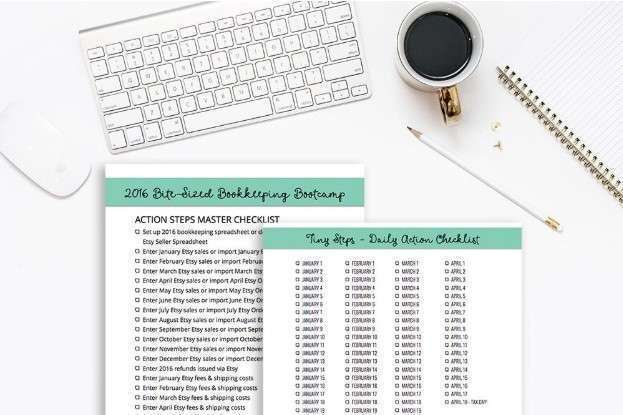This arises when the company provides goods or services before billing the customer. DR, on the other hand, involves receiving payment in advance for products or services that will be delivered in the future. The key difference lies in whether the revenue or the payment comes first in the timeline. Unbilled revenue refers to revenue that a company has earned but has not yet billed to the customer.
How does Deferred Revenue help businesses?
With the roll-out of ASC 606, there was a slight adjustment to the terminology for deferred revenue, as well as accrued revenue. Now, if an agreement has deferred revenue, it is referred to as being in the “contract liability” position whereas accrued/unbilled revenue is now known as being in the “contract asset” position. While deferred revenue presents challenges, proactive management and the right tools can help businesses address these challenges effectively. Solutions such as Stripe can simplify some of these complexities, making it easier for businesses to stay on top of their obligations and maintain a positive relationship with their customer base. Lastly, it’s important to manage customer expectations when dealing with deferred revenue. Customers who prepay do so with a certain level of trust, expecting timely delivery of the promised goods or services.
Deferred Revenue: How to Recognize It Properly
For example, prepaid expenses like prepaid insurance are slightly different from deferred revenue and must be recorded separately to ensure compliance. Accrual accounting records revenue for products or services that have been delivered before payment has been received. This is the opposite of deferred revenue in a way, that records revenue for services or products yet to be delivered. Accrual accounting records revenue for payments that have not yet been received for products or services already delivered. Accurately recognizing deferred revenue allows businesses to maintain financial stability, project more accurate economic forecasts, and comply with various taxation laws. It’s https://siahub.info/dmca-notice/ crucial to adhere to the best practices in deferred revenue management, encourage proper compliance, and continually stay updated with the changing revenue recognition rules.
Deferred Revenue vs. Accounts Receivable: What is the Difference?
Understanding the disparity helps maintain accurate financial statements and compliance with accounting standards. Yes, deferred revenue is initially recorded as a liability on the balance sheet since it represents an obligation to provide goods or services in the future. As the revenue is earned, it is gradually recognized as revenue, offsetting the liability.
AccountingTools
Finvisor will help you with any aspect of accounting, from monthly bookkeeping to complex oversight. As your on-demand CFO, we work to understand your unique challenges and qualities, and create solutions that work. Perform regular reconciliations to ensure that the deferred revenue balances on the balance sheet align with the goods or services that have been provided. RightRev simplifies the whole process with its advanced revenue automation solution.
- Liabilities such as Deferred Revenue can burden businesses, affecting cash flow and financial stability.
- The importance of deferred revenue also extends beyond the balance sheet to other business concerns, including liquidity, regulatory compliance, and valuation.
- With each month, a business can record the performance bonuses as a liability on their balance sheet to accurately record what they’ll need to pay out at the end of the period.
- Because the membership entitles Sam to 12 months of gym use, you decide to recognize $200 of the deferred revenue every month—$2,400 divided by 12.
- By accurately accounting for these revenues, businesses can smooth out their income over time, enhance their budgeting processes, and make more informed decisions regarding investments and expenses.
Products & pricing
In summary, deferred revenue plays a vital role in reflecting a company’s true financial health and accurately portraying its revenue recognition. By managing it effectively, businesses can maintain transparency, foster trust with investors, and inform strategic decision-making for better long-term financial stability. Moreover, deferred revenue can significantly impact a company’s cash flow statement. In the early stages of deferring revenue, cash inflows may be higher than the recognized revenue. This creates a positive cash flow from operations, which can be beneficial in the short term. However, businesses must be mindful of the https://enginerishka.ru/ventilyaciya/podbor-kondicionera-dlya-kvartiry.html long-term implications, as future cash inflows may be lower when the deferred revenue has been recognized.
Deferrals like deferred revenue are commonly used in accounting to accurately record income and expenses in the period they actually occurred. When a legal practice charges a new client a $10,000 retainer fee, it isn’t immediately recorded as revenue in its books. It records it as deferred revenue first, and only records $10,000 in revenue after the entire retainer fee has been earned. The adjusting entry to recognize deferred revenue originally recorded as revenue during the period is a debit to revenue and a credit to unearned revenue. This is because the company has a commitment to deliver goods or services in the future, and the received payment represents an obligation to fulfill that commitment.
Common in subscription-based models and prepaid services, it’s essential in financial accounting, ensuring that revenue is accurately reported. It’s essential to note that deferred revenue is a liability, not an asset, on a balance sheet, as it represents an obligation to deliver products or services. Proper management of deferred revenue helps businesses ensure an accurate reflection of their financial health.
By the end of the subscription term, the company would have recognized a total revenue of $1,200, and the deferred revenue balance would be $0. For example, a contractor might use either the percentage-of-completion method or the completed contract method to recognize revenue. Under the percentage-of-completion method, the company would recognize revenue as certain milestones are met. Under the completed-contract method, the company would not recognize any profit until the entire contract, and its terms were fulfilled.
Therefore, the country club has satisfied one month (1/12th) of its requirement to offer country club benefits for a full year. Charlene Rhinehart is a CPA , CFE, chair of an https://aviametr.ru/airline/airline-calm-air.html Illinois CPA Society committee, and has a degree in accounting and finance from DePaul University.



